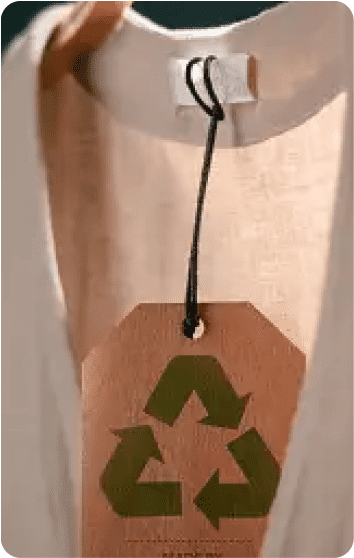Welcome to the world of sustainable gardening where every small step counts towards a healthier planet. In our journey towards a zero-waste lifestyle, let’s explore how something as simple as eggshells can significantly benefit your plants. This guide will delve into different ways that eggshells can be used to nourish your plants and enrich your garden, all while adhering to eco-friendly practices.
The Benefits of Eggshells for Plants
Eggshells are filled with nutrients, mainly composed of calcium carbonate, which is an essential element for plant health. Here’s a deeper look into how these kitchen scraps can be a boon for your garden:
Calcium Supply
Calcium is important for plant structure, helping in the formation of cell walls and membranes. It also plays a crucial role in enzyme activation and response to hormonal signals. When you add eggshells to your soil, they gradually decompose, releasing calcium steadily. This ensures that your plants receive a consistent supply of this vital nutrient, promoting healthier growth and strengthening their structure.
Preventing Blossom End Rot
Blossom end rot is a common problem observed in tomatoes, peppers, and eggplants, often due to a calcium deficiency. This condition causes dark, sunken spots on the fruit’s blossom end. By adding eggshells to the soil, you provide a slow-release form of calcium, reducing this deficiency and keeping your fruits spotless and healthy.
Improving Soil Quality
Over time, eggshells enhance the soil’s structure and pH balance. They can be especially beneficial in slightly acidic soil, where the calcium carbonate acts as a liming agent, reducing acidity and providing a more favorable environment for your plants to grow.
Pest Deterrent
The sharp, grainy texture of crushed eggshells is unappealing to soft-bodied pests like slugs and snails, who might otherwise feast on your tender plants. By creating a barrier with crushed eggshells around your plants, you can keep these pests at bay without using harsh chemicals.
Nutrient Recycling
Using eggshells in your garden is a form of nutrient recycling. Instead of throwing them away, you’re returning valuable minerals to the soil, promoting a sustainable cycle of growth and renewal.
Incorporating Eggshells in Your Garden

Preparing Eggshells
To make the most out of eggshells for your garden, proper preparation is key. Here’s a more detailed guide on how to prepare them:
Cleaning
Start by thoroughly rinsing the eggshells to remove any remaining egg white or yolk, as these can attract pests or cause unpleasant odors as they decompose. You can do this by placing the shells in a sieve and running them underwater.
Drying
Once clean, spread the eggshells out on a paper towel or clean cloth and allow them to air dry completely. This step is essential to prevent mold growth and to make the crushing process easier.
Crushing
There are several methods to crush eggshells. Use a mortar and pestle, coffee grinder, or a high-powered blender for a finer powder. This powder can be easily mixed into the soil or potting mix. If you prefer a coarser texture, which can be beneficial for preventing pests, place the dried shells in a bag and crush them with a rolling pin. The size of the crushed pieces can be adjusted according to the specific needs of your garden or the plants you’re tending to.
Storing
If you’re not ready to use the eggshells immediately, store the dried and crushed shells in an airtight container. Keep them in a cool, dry place until you’re ready to use them in your garden.
Application Methods of Eggshells

Eggshells can be incorporated into your garden in various ways:
- To Improve Soil Quality: Mix crushed eggshells directly into the soil or sprinkle them on the surface to improve calcium content.
- In Compost: Add eggshells to your compost bin to enrich the compost with calcium.
- As Seed Starters: Use halved eggshell halves as natural, biodegradable seed starters.
Creative Uses of Eggshells
Beyond traditional uses, eggshells can be used quite innovatively in the garden:
- Eggshell Seedlings: Start your seeds in eggshells, then plant them directly into the soil, shell and all.
- Pest Preventer: Scatter crushed eggshells around your plants to deter soft-bodied pests.
- Decorative Manure: Use crushed eggshells as a decorative and beneficial mulch for your pots.
Tips for Successful Eggshell Application
To make the most out of eggshells, consider these tips:
- Dosage: Don’t overdo it. A handful of crushed eggshells per plant is sufficient.
- Timing: Apply in early spring as you prepare your beds for planting or when planting new plants.
- Mixing: For better distribution, mix eggshells with other organic matter like compost or leaf mold.
The Environmental Impact of Eggshell Usage
Using eggshells in your garden is a fantastic way to reduce waste and contribute to a sustainable lifestyle. By recycling what would otherwise end up in the landfill, you’re taking an active role in waste reduction. Additionally, as a natural product, eggshells break down over time, enriching the soil without adding any chemicals.

Conclusion
Eggshells and their rich calcium content and versatility, are a boon for gardeners looking to adopt a more sustainable and zero-waste approach. Whether you’re looking to boost your plant’s health, prevent pests, or simply reduce waste, eggshells can be your garden’s best friend. So, the next time you cook up an omelet, think twice before tossing those shells away!
FAQs
Can I use any type of eggshell for my plants?
Yes, all eggshells are beneficial, regardless of the egg’s size or color.
How long does it take for eggshells to decompose in the soil?
Eggshells take about one to two years to decompose completely, but they start releasing nutrients much sooner.
Can I use crushed eggshells as a natural pest control method?
Yes, the sharp edges of crushed eggshells deter soft-bodied pests like slugs and snails.
Are eggshells a good source of calcium for vegetable plants?
Absolutely! Eggshells are an excellent source of calcium, which is vital for preventing blossom end rot in vegetables like tomatoes and peppers.



